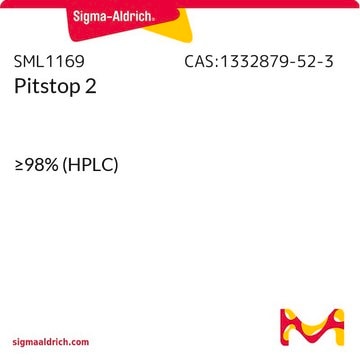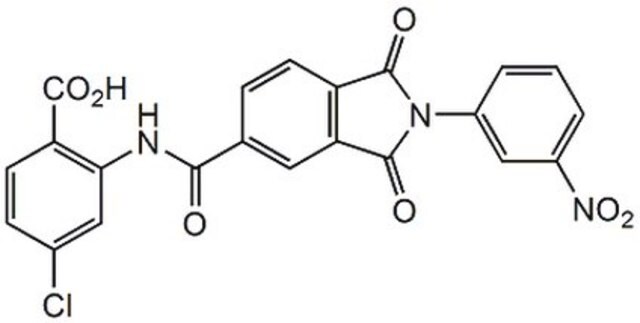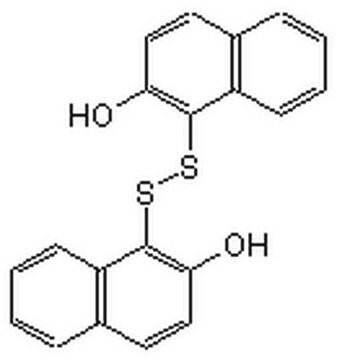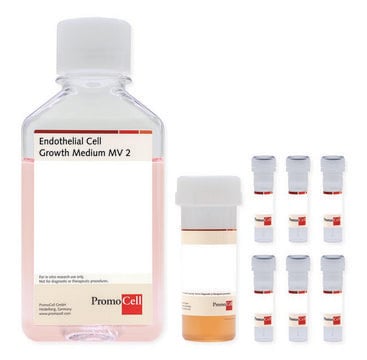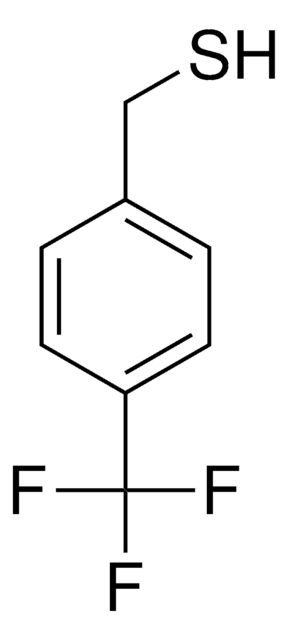324410
Dynasore
≥98% (HPLC), solid, dynamin inhibitor, Calbiochem®
Synonym(s):
Dynamin Inhibitor I, Dynasore, 3-Hydroxynaphthalene-2-carboxylic acid-(3,4-dihydroxybenzylidene)-hydrazide, Sore to Dynamin
About This Item
Recommended Products
product name
Dynamin Inhibitor I, Dynasore, The Dynamin Inhibitor I, Dynasore, also referenced under CAS 304448-55-3, controls the biological activity of Dynamin. This small molecule/inhibitor is primarily used for Membrane applications.
Quality Level
Assay
≥98% (HPLC)
form
solid
manufacturer/tradename
Calbiochem®
storage condition
OK to freeze
protect from light
color
pale yellow
solubility
DMSO: 16 mg/mL
shipped in
ambient
storage temp.
2-8°C
InChI
1S/C18H14N2O4/c21-15-6-5-11(7-17(15)23)10-19-20-18(24)14-8-12-3-1-2-4-13(12)9-16(14)22/h1-10,21-23H,(H,20,24)/b19-10+
InChI key
SYNDQCRDGGCQRZ-VXLYETTFSA-N
General description
Packaging
Warning
Reconstitution
Other Notes
Nankoe, S.R., and Sever, S. 2006. Trends Cell Biol.16, 607.
Newton, A.J., et al. 2006. Proc. Natl. Acad. Sci. USA103, 17955.
Macia. E., et al. 2006. Dev. Cell10, 839.
Legal Information
Storage Class Code
11 - Combustible Solids
WGK
WGK 3
Flash Point(F)
Not applicable
Flash Point(C)
Not applicable
Certificates of Analysis (COA)
Search for Certificates of Analysis (COA) by entering the products Lot/Batch Number. Lot and Batch Numbers can be found on a product’s label following the words ‘Lot’ or ‘Batch’.
Already Own This Product?
Find documentation for the products that you have recently purchased in the Document Library.
Customers Also Viewed
Our team of scientists has experience in all areas of research including Life Science, Material Science, Chemical Synthesis, Chromatography, Analytical and many others.
Contact Technical Service

